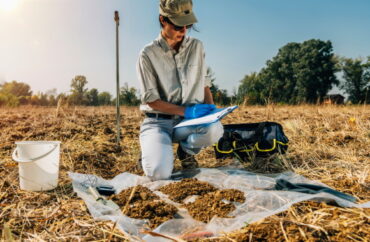
Geoscience courses are “too rock heavy,” remote field sites are not handicap accessible, and faculty in the field are insufficiently diverse — these are some of the concerns identified through a nationwide survey of students majoring in geoscience.
“BIPOC students in geoscience face discrimination and barriers to learning at all levels, from microaggressions to systemic racism,” wrote Willa Rowan of Western Washington University in her August 2023 master’s thesis.
Geoscience students that fall into this umbrella category of black, indigenous, or people of color, stated Rowan, “are also less likely to have positive, transformative experiences than their white peers.” These white peers, she added, are also overrepresented in geoscience.
Rowan’s claims follow her analysis of the self-reported experiences of geoscience students from a variety of demographic backgrounds and how these experiences impact what Rowan refers to as their “geoscience identity.”
Defining the construct as one’s ability to identify as a geoscientist, Rowan measured geoscience identity through a series of survey questions gauging self-reported competence at understanding geoscience content, performance of geoscience activities, and recognition as a geoscientist by others.
She surveyed 139 college seniors majoring in geoscience and recruited from 99 universities.
In addition to the survey questions, Rowan also presented participants with a series of short-answer questions inquiring about their motivations, educational transitions, and transformative academic experiences: Why did they choose their major? Did they ever consider leaving their major? Do they plan to pursue a geoscience career after graduating? Nearly 130 students answered the short-answer questions.
Upon analyzing student survey and short-answer responses, Rowan found white students “had stronger geoscience identities than BIPOC male students, with much of the difference concentrated in the performance/competence domain of geoscience identity.”
This finding, Rowan noted, “speaks to issues of racial equity that go beyond diversity and representation.”
“Although representation on its own was found to impact students’ sense of belonging, several cultural and structural factors contribute to an environment where BIPOC students, especially female and non-binary BIPOC students, endure more discrimination and are less likely to access positive, formative experiences in their geoscience programs,” Rowan wrote.
“BIPOC students, especially female and non-binary students, were more likely to report struggles with mental health and feelings of inadequacy.”
Some students, Rowan stated, lamented being the only one with their unique intersection of identities in their department or not being able to see themselves represented among faculty.
For illustration, Rowan shared a quote from one student who wrote, “I’ve never seen anyone like me in the geosciences which is sometimes disheartening. I have so far had one BIPOC/API teacher who was queer, and one white queer teacher. But I have never had a teacher with a mix like mine and is also transgender and queer like me.”
Those from indigenous backgrounds were reported by Rowan to have been upset by the lack of indigenous knowledge and place names incorporated into courses, as well as the clinical presentation of such topics when they did come up.
Although not limited to BIPOC students, Rowan also detailed how some students with physical limitations complained that geological field sites at which field camps or courses were held were not always handicap accessible or had physical demands that not all students could easily meet.
Throughout her thesis, Rowan also enumerated numerous other frustrations and complaints by students about their programs that did not appear to be explicitly related to race, gender, or physical ability, such as the affordability of field experiences, burnout, dissatisfaction with course offerings or course content, and professors not respecting them enough for the knowledge they didn’t have.
For example, one geoscience student quoted by Rowan wrote, “Courses are too rock heavy.” Another she quoted wrote, “Sometimes I feel like my professors don’t respect me for my knowledge and I am a bit self-conscious of how much geoscience knowledge I lack.”
To right the wrongs described in her thesis and improve equity within the field of geoscience, Rowan made several recommendations, including listening to BIPOC students and reprimanding those guilty of discrimination.
Rowan also suggested geoscience departments “adapt culturally responsive pedagogies to all courses to enable BIPOC students to better identify with the field,” adding, “Geoscience departments should consider the integration of Indigenous knowledge, place-based education, and respect and acknowledgement of the Indigenous peoples whose land they occupy and study on.”
Additionally Rowan wrote field experiences need to be adapted as well to make them more equitable and accessible, as factors such as cost, physical requirements and “backcountry” settings may serve as “barriers to students” that cannot afford them, meet the physical demands of working in a remote rural setting, or find themselves uncomfortable being in such settings.
The College Fix reached out to Rowan via email with several questions regarding her thesis, including whether she believed any challenge to a student’s confidence or geoscience identity is inherently problematic, as well as whether changing the sites of field courses in the interest of accessibility and student comfort might negatively impact students wishing to pursue careers that entail working at traditional field sites. Rowan did not respond.
MORE: Students: Geological term dyke offensive to lesbians
IMAGE: Microgen/ Shutterstock





Please join the conversation about our stories on Facebook, Twitter, Instagram, Reddit, MeWe, Rumble, Gab, Minds and Gettr.